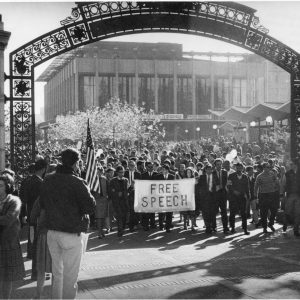
Though the current Supreme Court term only started on October 6, the court has already issued orders on two controversial issues and started hearing oral arguments for many other important cases.
Though the court struck down Wisconsin’s voter ID law for the upcoming midterm elections, they handed down emergency orders that upheld North Carolina’s and Texas’ voter ID laws. The North Carolina law prohibits voting and registering on the same day and does not count votes that were cast in the wrong polling place. According to SCOTUSblog, it was also found to significantly impact African Americans’ voting opportunities by a lower appeals court. Though the law may be overturned on appeal in the future, it could impact close races such as the Senate race between Senator Kay Hagan (D) and State House Speaker Thom Tillis (R), as the two were tied or Kagan had a lead within the margin of error in the latest polls. In the Texas case, Justices Sotomayor, Ginsburg, and Kagan dissented, and while no reasoning was given in support of the order, Ginsburg wrote in the dissenting opinion that the law “imposes an unconstitutional poll tax and risks denying the right to vote to hundreds of thousands of eligible voters.”
Aside from voter ID laws, the court also stopped the enforcement of parts of a Texas abortion law. As of now, Texas cannot require that abortion clinics be the equivalent of hospital surgical centers to operate, which will allow 13 clinics previously shut down to be reopened.
Though the court has been very active in issuing orders, they have also been listening to oral arguments on many major cases. One such case is Heien v. North Carolina. The defendant in the case was pulled over for a broken brake light and then was subsequently found to be in possession of cocaine. However, under North Carolina law, it is not illegal to be driving with a broken brake light, as long as your other brake light works. The court will decide whether an officer’s mistake regarding the letter of the law is enough of a probable cause to warrant a traffic stop. If the court does not find probable cause, they could potentially expand fourth amendment protections about unreasonable search and seizure. Another case that the court heard arguments about is Holt v. Hobbs, which concerns whether prohibiting a Muslim inmate from growing a half-inch beard for safety reasons violates his religious freedom.
There are other high-profile cases on the docket for which oral arguments have not been heard yet. Zivotofsky v. Kerry is about whether Congress can decree that anyone born in Jerusalem was born in Israel, in effect calling Jerusalem the capital of Israel. The concern is whether or not this will compromise the President’s ability to conduct foreign affairs, as no country other than Israel has publicly taken this stance. Another case, Alabama Democratic Conference v. Alabama, considers whether the redistricting carried out by the state legislature is legal. Democrats allege it was gerrymandering because the redistricting disproportionately put minority voters into only a few districts. Alabama argues that the redistricting is legal after the Supreme Court struck down Section IV of the Voting Rights Act last year, which meant that states with a history of voting discrimination did not have to get federal approval before redistricting and could draw their districts however they saw most fit. The Court will also listen to a similar redistricting case about Arizona, deciding whether having an independent commission redistrict rather than the legislature is constitutional.
While many high-profile cases have not yet been granted an appeal, including cases involving provisions of the Affordable Care Act and whether or not there is a constitutional right to gay marriage, the court has already handed down orders that will impact the November election and heard arguments on cases that will have far-reaching effects themselves.





Be First to Comment